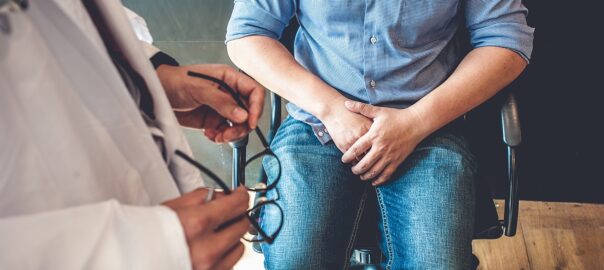Understanding Sexual Health
Sexual health encompasses a broad spectrum of factors that contribute to an individual’s overall well-being in relation to sexuality. It is not merely the absence of sexually transmitted infections (STIs) or diseases; rather, sexual health embodies a holistic approach that includes physical, emotional, and social elements. According to the World Health Organization (WHO), sexual health is defined as a state of physical, emotional, mental, and social well-being in relation to sexuality. This definition emphasizes that a positive and respectful attitude towards sexual relationships is integral to achieving optimal sexual health.
Physical well-being is fundamentally linked to sexual health, as proper bodily function is crucial for sexual performance and satisfaction. A range of factors, including hormonal balance, cardiovascular health, and muscular strength, play significant roles in determining sexual function. According to Dr P K Gupta, best sexologist in Delhi, conditions such as obesity, diabetes, and cardiovascular diseases can negatively impact an individual’s sexual experience, underscoring the importance of maintaining good physical health.
Equally important are the emotional and social dimensions of sexual health. Emotional well-being affects intimacy, the ability to form relationships, and the capacity to communicate desires and boundaries effectively. Factors such as stress, anxiety, and depression can hinder sexual function and satisfaction. Additionally, social aspects, including cultural attitudes and societal norms surrounding sexuality, play a pivotal role in shaping an individual’s experiences and perceptions related to sexual health.
Exercise emerges as a vital contributor to enhancing sexual health. Regular physical activity improves cardiovascular fitness, boosts mood, and increases body confidence, all of which can enhance sexual function and satisfaction. Through its multifaceted influence on physical and emotional well-being, exercise stands out as a cornerstone of effective strategies aimed at promoting sexual health. Thus, understanding sexual health in its entirety requires a comprehensive look at how factors like exercise interact with and enhance the various components of well-being related to sexuality.
Physical Benefits of Exercise on Sexual Health
Regular exercise plays a pivotal role in enhancing sexual health by offering a plethora of physical benefits that are crucial for optimal sexual function. One of the primary advantages is the improvement of cardiovascular health. Engaging in physical activities, particularly aerobic exercises such as jogging, swimming, and cycling, strengthens the heart and improves blood circulation throughout the body. Enhanced blood flow is essential for achieving and maintaining erections in men and can significantly increase sexual arousal and response in women.
Another benefit of exercise is the increase in stamina and energy levels. Regular workouts condition the body to endure prolonged physical activities, which can enhance sexual performance. It has been observed that individuals who participate in consistent exercise regimens report increased endurance, allowing for more enjoyable sexual encounters. Furthermore, the physiological effects of exercise—such as improved muscle tone and flexibility—can contribute to a greater variety of sexual positions and experiences, ultimately leading to heightened satisfaction.
Strengthening the pelvic floor muscles through targeted exercises, such as Kegels, is another aspect where exercise directly bolsters sexual health. A strong pelvic floor can lead to improved sexual sensation and more intense orgasms. Additionally, these exercises can aid in reducing instances of incontinence, which may improve overall confidence during intimate moments.
Enhancing hormonal balance is yet another critical benefit of regular physical exercise. Activities like strength training and aerobic workouts can increase the body’s production of sex hormones, including testosterone and estrogen. This hormonal boost can lead to an increase in libido, further enhancing the desire for sexual activity. Research supports that individuals who maintain active lifestyles often experience higher levels of sexual satisfaction due to these hormonal changes, regardless of age.
Psychological Effects of Exercise and Sexual Health
Engaging in regular exercise has been shown to significantly enhance psychological well-being, which directly impacts sexual health and intimacy. One of the most notable benefits is the reduction of stress and anxiety. Physical activity triggers the release of endorphins, often referred to as “feel-good” hormones, which can alleviate feelings of tension. Reduced stress levels can lead to increased sexual desire, as anxiety often acts as a barrier to sexual performance and connection.
Moreover, exercise contributes to improved mood and self-esteem, both of which are essential components of a healthy sexual life. Individuals who engage in consistent physical activity often report feeling more confident and positive about their bodies. This improved body image can enhance sexual confidence, which is critical for a satisfying sexual experience. When individuals feel good about themselves, they are more likely to engage in intimate activities, thereby enhancing their sexual relationships.
Real-life testimonials bolster the importance of exercise for psychological health. For instance, many individuals submit that after starting a regular fitness routine, they observed not only an uplift in their mood but also a notable increase in their sexual appetite. This correlation highlights how a positive mindset can lead to a more fulfilling sexual life. Furthermore, group exercises or partner workouts can foster a sense of companionship that also enhances emotional bonds, fostering intimacy and trust. This dynamic is particularly significant in relationships, where the psychological benefits of partnership in exercise directly contribute to a healthy sex life.
Thus, the interplay between exercise and psychological health plays a vital role in enhancing sexual health. As individuals increasingly prioritize mental well-being through physical activity, they may experience profound and lasting effects on their sexual satisfaction and relational dynamics.
Practical Tips for Incorporating Exercise into Your Routine
Integrating exercise into your daily life is a crucial step towards enhancing not only physical fitness but also sexual health. To begin, consider setting aside dedicated time for physical activity. Aim for at least 150 minutes of moderate aerobic exercise per week, such as brisk walking, cycling, or swimming. Splitting this time into shorter sessions, such as 30 minutes five days a week, can make the commitment seem less daunting and more achievable.
Additionally, strength training should be incorporated at least two days a week. Exercises such as weight lifting, resistance band workouts, or bodyweight exercises like push-ups and squats can significantly enhance muscle tone and endurance. Improved muscle strength can translate into better performance and stamina during sexual activity, thus enhancing overall sexual health.
Timing is another aspect to consider when planning your exercise sessions. Engaging in physical activity before intimate moments can boost energy levels and promote feelings of well-being due to the release of endorphins. Morning workouts may energize you for the day, while evening exercise can help reduce stress accumulated throughout the day, paving the way for intimacy. Finding a routine that suits your lifestyle will help in maintaining motivation.
For couples, exercising together can strengthen not only physical health but also emotional bonds. Activities such as yoga, dance classes, or hiking can foster a shared commitment to fitness and create opportunities for connection. Setting mutual fitness goals, such as training for a local race or attending a weekly class, can enhance motivation and accountability.
Incorporating these practical strategies into your routine will not only improve your fitness levels but also play a vital role in enhancing your sexual health.






